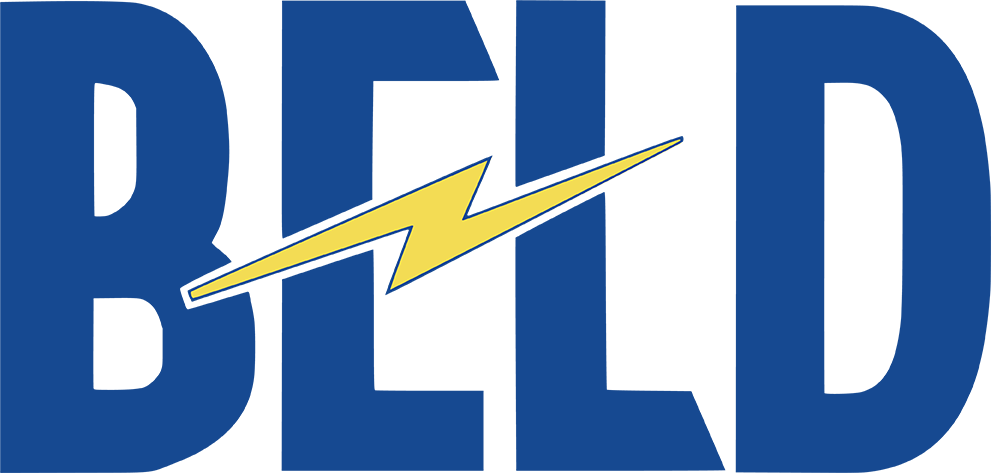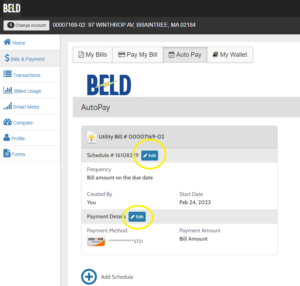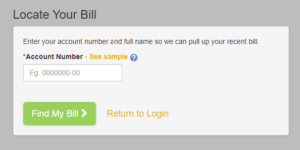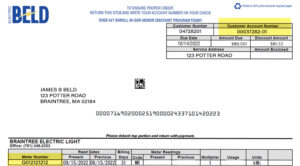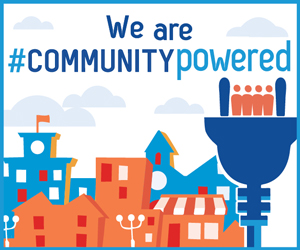Calling BELD at 781.348.BELD (2353) to report that a streetlight is out, and provide us with the location and pole number on the white tag. This saves time for the lineworkers locating the pole, enabling them to fix the light faster.
Electric Support
For questions or concerns with your electric service, call 781.348.BELD (2353), 24 hours a day. Emergency calls will be routed to an answering service after office hours, and a voice mail system is always available to take messages. Or simply click here to send an e-mail.
In accordance with Massachusetts Department of Public Utilities (DPU) regulations, Braintree Electric Light Department (BELD) has developed procedures that provide special protection against electricity shut-off due to overdue electric bills.
Do you think your bill is incorrect?
If you believe your bill is inaccurate, you may appeal to a BELD Complaint Officer at 150 Potter Road, Braintree, MA 02184, or call 781/348-2353 within 30 days from the due date of the bill. You will be informed of the decision within 30 working days of receipt of the complaint. If you dispute the Complaint Officer’s decision, you may appeal to the BELD General Manager. If you dispute the General Manager’s decision, you may appeal to the Braintree Municipal Light Board. That decision may be appealed to the Massachusetts Department of Telecommunications and Energy, Consumer Division, One South Station, Boston, MA 02110, or call 617/305-3531 or toll-free in Massachusetts 800/392-6066.
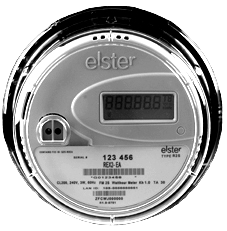 Electric Meters
Electric Meters
An electric meter measures kilowatt hours. A kilowatt hour (or kWh) is equal to 1,000 watts of electric energy used in one hour. One 100-watt bulb burning for 10 hours equals one kWh.
Advanced Metering Infrastructure (AMI)
BELD now uses an Advanced Metering Infrastructure (AMI) system for residential and business meters, which allows us to monitor everything remotely from our BELD offices. This can help us determine reasons why your usage may be high and help customers become more energy efficient. We also receive alerts when an AMR meter is no longer sending us readings so we can investigate any potential problems. In most cases we are already on the road to the problem area before the customer even has a chance to inform us of an issue. The transmitting device operates in compliance with FCC regulations in a licensed spectrum to avoid interference with other electronic devices. The AMI system operates for short periods of time at a low-power frequency reserved for this purpose and should not interfere with other equipment.
How to read your electric meter
Your electric meter is digital. Numbers are read from left to right. To find out the number of kilowatt hours used during a given amount of time, take two readings, then subtract the earlier from the more recent.
You asked, and we listened! We’ve redesigned your electric bill to make it easier to read and understand. We hope you like it as much as we do. Below is a sample bill with some of the changes. Feel free to call us at 781.348.BELD (2353) with questions.
Don’t forget about paying your bills online using our new site! Visit www.beld.com and click “Online bill pay”. Sign up today for paperless billing and/or autopay.
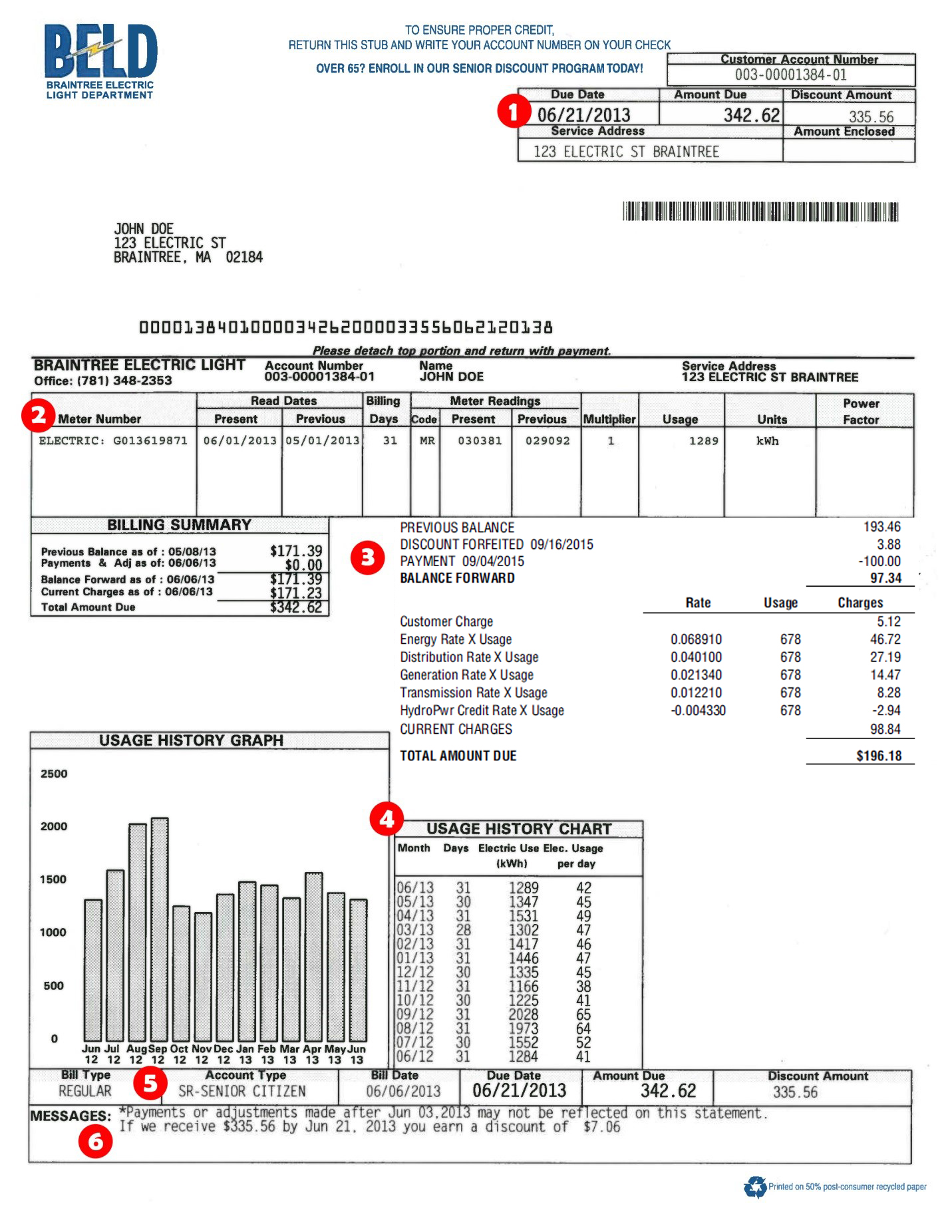
- Here is your account number, total amount due, due date, discounts earned and space to note the amount you’re enclosing. For auto pay accounts the amount and date of debit will be noted. The amount due is the total due before the prompt payment discount. Understanding your new electric bill
- Your electric usage and the meter read dates appear here.
- Here is a breakdown of all your electric charges. This area provides information about your payment history, including past balances. The amount due is the total due before the prompt payment discount. The kilowatt-hour charge reflects three services: energy or generation, transmission, and the distribution of electric power, along with a small monthly “Customer Charge” (unrelated to your usage). Here’s what they mean:
Energy is the electric current produced at power plants, which use fuels such as oil, gas, water or nuclear fission to turn turbines that produce electricity.
Distribution is the local delivery of electricity. High-voltage current leaves the transmission lines at a substation, where transformers reduce it to a medium voltage. Electricity then travels through distribution lines on poles or underground to neighborhoods. Here it passes through another transformer, which reduces it to 120/240 volts for household use. The final step is for the electricity to pass through a meter to measure use in the kilowatt-hour units that appear on the electric bill.
Generation is the cost associated with Braintree’s ownership of generation plants including plants owned and operated by BELD as well as plants owned through contracts. This includes all costs associated with the generation of electricity less fuel.
Transmission is the cost to move bulk electricity from power plants to local substations. In New England, power plants and utilities share common transmission lines, and the lines’ owners charge utilities for moving the purchased electricity from the power plant to local destinations.
New York Hydro Power Credit is a credit to residential customers only due to Braintree’s contract for hydroelectric power being delivered from the Niagara and St. Lawrence rivers located in New York.
- We now have usage history charts that go back 13 months (this is our favorite addition). This box provides a comparison with your usage for the entire year.
- Account type (rate), bill date, due date, amount due, your discounted amount and confirmation of the senior citizen discount appear here.
- This section is for any special BELD messaging including reminders about the early payment discount and automatic debit payments.
Paying your bill
Your bill is payable upon receipt and due 45 days later. You agree to pay us monthly by the payment due date as shown on your bill and for any administrative fees due to late payments or other charges due us. You agree to pay all federal, state, local, and user taxes, and other charges, if any, which we may now or in the future be required to assess you. Billing rates are subject to periodic adjustment as permitted by franchise agreements and federal law.
If payment is made within 15 days of the bill date, residential customers are entitled to a 10% discount on the total Distribution and Transmission charges. Customers may also apply for BELD’s senior citizen discount. Partial or late payments automatically forfeit early payment discounts.
An effort will be made to contact the writer of a returned check to secure payment; returned checks are subject to a $30 service charge. Commercial and non-residential accounts with unpaid balances 30 days after billing are subject to a 1.5% interest charge. If you are on the automatic debit plan and your check is returned for the second time, you will be removed from the plan.
You may pay for multiple months of service in advance if that is more convenient for you. If changes in rates occur after advance payments are made, you are responsible for any adjusted rates as of the applicable rate change effective date.
You may pay with check, money order, credit card (MasterCard, Visa, American Express, or Discover), automatic debit, or online. Please write your account number and service address on your check and allow 5-7 days for processing. To ensure prompt attention, please write your inquiries or requests on a separate piece of paper rather than on the bill itself. You may:
- Pay your bill online! This feature makes it easy and safe to manage your account right from your computer. In addition, you can pay your bill over the phone by calling 781.348.1001.
- Enclose your payment in the return envelope provided with the bill and mail with the remittance stub to BELD. Do not mail cash.
- Pay your bill at our Potter Road offices.
- Place your payment in one of the BELD drop boxes located at the top of Potter Road or Braintree Town Hall. Please do not pay in cash when using a drop box.
- Pay your bill at a South Shore Bank office -1010 Washington Street (you may pay with cash here).
- Pay your bill at Town Hall. On the last Tuesday of every month, a BELD Customer Service Representative is stationed at 1 JFK Memorial Drive to take payments and answer questions.
- Sign up for our automatic debit plan to save time and money. You will still receive a monthly statement, but your bill payment will be automatically deducted from your bank account.
Why your electric bill may change from month to month
The most likely reason for a change in your bill may be due to a change in how you used energy. Typically, a home is equipped with many energy-using appliances that are not always used the same amount each month. You may have had guests, which could have contributed to higher water usage (causing your electric water heater to run more), more lights being used (or being used longer), more laundry, cooking, etc.
The time of year is another possible reason for changing bills. During the summer months, some appliances—such as dehumidifiers, air conditioners, fans and swimming pool pumps—run more. In the winter, most heating systems use electricity to circulate the heat. We also tend to spend more time indoors, running appliances and lighting for longer hours.
Finally, a bill may be higher or lower because there was a difference in the number of days between readings. Generally, your meter is read every 30 days, but there are times when your meter reading may be for less than 30 days or more than 30 days. It will state on your electric bill the number of days the bill covers.
If your think your bill has changed drastically and none of these factors seem to apply, contact our Energy Advisor. We may be able to offer an explanation, make arrangements to have a check reading done to make sure your meter was read properly, or schedule an energy audit.
If you are unable to pay your bill
If you are having difficulty paying your utility bill, you can make a payment arrangement with BELD’s Delinquent Accounts clerk. Under this plan a past due balance may be paid in equal installments over a specified period. Current charges will be due in addition to the payments on the past due balance. The length of time that a payment arrangement extends will vary from a minimum of four months, depending on the past due balance and your ability to pay. Also, if you own a home that contains electric heat and hot water, you may apply to be put on a budget plan. Contact BELD Customer Service for more information on these plans.
In addition, there are regulations allowing flexibility for people facing disconnection:
Bad health: If losing your electric service would be an immediate and serious health hazard for you or someone in your home, ask your physician to write a letter to BELD explaining the situation. Serious illness medical notes are good for 3 months and chronic illness for 6 months. Both should be submitted with a Financial Hardship Form.
Severe winter weather: These guidelines are in effect between November 15 and March 15 each year. If you or someone in your home is 65 or older, your electric service will not be shut off for non-payment if the weather forecast calls for the temperatures to drop below 32°F during the 48 hours starting the morning of the shut-off day. You must provide advance written notice to BELD that the household qualifies to remain with power under these conditions and, if necessary, provide proof. Otherwise, service will not be disconnected if the 48-hour forecast is predicted to fall below 10°F.
Renters: It is illegal for a landlord to evict a tenant by asking that the electric service be shut off. If a landlord discontinues service for a rental unit that is in his/her name, BELD must give the tenants a chance to continue the service.
Cancellation and refund policies:
Electric
According to the Rules & Regulations of Braintree Electric Light Department (BELD), the application form provided by BELD includes information the Department deems essential to supply service to the applicants. The customer remains responsible for all electricity usage until a final bill has been issued as provided under Article 403 (Section 201). Forty-eight (48) hours notice is required to disconnect existing service.
The customer shall be liable for service taken until BELD receives and confirms notice of termination and until the meter is read and disconnected. The bill for service rendered up to the date of termination will be labeled “final bill” and is payable upon receipt (Section 403).
Your electric bill payment is due upon receipt. After 30 days, your account becomes overdue and you may receive an overdue/termination notice and a red disconnect notice indicating that your service will be shut off on or after a specific date unless you have paid your bill by then or made arrangements with us to pay. If you are terminated for nonpayment, a security deposit will be required per BELD’s deposit policy.
If someone in your household relies on electrically operated life support equipment, please contact us. We will place you on our confidential emergency notification list to inform you of any power outages affecting your area. If you have any questions about the life support list or if your information changes, please let us know.
In the event of a power outage, we will try to contact you to give you an estimate of how long you’ll be without power. No utility can guarantee that you’ll have electricity available 24 hours a day, 365 days a year. Therefore, we strongly urge customers who need life support equipment to have a backup plan. Obtain an alternative source of electric power for your life support equipment. This might be a battery-operated backup system, an uninterruptible power supply, or a generator. We recommend a minimum of 24 hours of backup. In addition, you should keep all emergency telephone numbers in a convenient location. Include your physician, fire department, police department, and ambulance.
If the power in your house goes out, make sure the problem is not due to a blown fuse or tripped circuit breaker in your home. One quick way to do this is to see if your neighbors have power. If not, call BELD as soon as possible. Here are some outage and storm tips:
- While you are waiting for BELD crews to arrive, turn off all appliances that turn on automatically when power is restored, including refrigerators, televisions, water pumps and furnaces. Leave one light on so you will know when the power is back on. Once power has been restored, gradually reconnect appliances and reset clocks and timers.
- Unplug all unnecessary appliances and electric equipment such as stereos, TVs and computers.
- Avoid opening your refrigerator or freezer (your food should stay fresh for at least 24 hours if the door is seldom opened).
- To help prepare your family for power outages caused by storms, make sure you have the following available:
- Flashlight and batteries
- Battery-powered radio
- Candles and matches
- Extra food and water
- First aid supplies and medicine
- Fire extinguisher
- Do not plug a backup generator into an outlet in your home without first disconnecting from our system. If you don’t, the power from your generator will flow backwards into our distribution system and may seriously injure or kill our linemen.
- Do not burn charcoal for heat—it gives off dangerous fumes. In addition, a fireplace may pull more warm air from a house than it gives out.
- Keep up to date on the situation on Facebook and Twitter
Extended power outages may impact the whole community and the economy. A power outage is when the electrical power goes out unexpectedly.
A power outage may:
- Disrupt communications, water and transportation.
- Close retail businesses, grocery stores, gas stations, ATMs, banks and other services.
- Cause food spoilage and water contamination.
- Prevent use of medical devices.
Tips during a power outage
- Keep freezers and refrigerators closed.
- Use a generator, but ONLY outdoors and away from windows.
- Do not use a gas stove or oven to heat your home.
- Disconnect appliances and electronics to avoid damage from electrical surges.
- Have alternate plans for refrigerating medicines or using power-dependent medical devices.
- Check with local officials about heating and cooling locations open near you.
How to Protect Yourself During A Power Outage
Go to a community location or relatives home with power if you have medical needs or heat or cold is extreme.
Preparing for a Power Outage
Take an inventory of the items you need that rely on electricity. Plan for batteries and other alternative power sources to meet your needs when the power goes out, such as a portable charger or power bank. Have flashlights for every household member. Determine whether your home phone will work in a power outage and how long battery backup will last.
Know Your Medical Needs
Talk to your medical provider about a power outage plan for medical devices powered by electricity and refrigerated medicines. Find out how long medication can be stored at higher temperatures and get specific guidance for any medications that are critical for life.
Food Storage
Have enough nonperishable food and water. Keep freezers and refrigerators closed. The refrigerator will keep food cold for about four hours. A full freezer will keep the temperature for about 48 hours. Use coolers with ice if necessary. Monitor temperatures with a thermometer. Throw out food if the temperature is 40 degrees or higher.
Using Appliances During Power Outages
Install carbon monoxide detectors with battery backup in central locations on every level of your home. Avoid carbon monoxide poisoning. Generators, camp stoves or charcoal grills should always be used outdoors and at least 20 feet away from windows. Never use a gas stovetop or oven to heat your home. Turn off or disconnect appliances, equipment, or electronics. Power may return with momentary surges or spikes that can cause damage.
Returning After A Power Outage
- When in doubt, throw it out! Throw away any food that has been exposed to temperatures 40 degrees or higher for two hours or more, or that has an unusual odor, color or texture.
- If the power is out for more than a day, discard any medication that should be refrigerated, unless the drug’s label says otherwise. Consult your doctor or pharmacist immediately for a new supply.
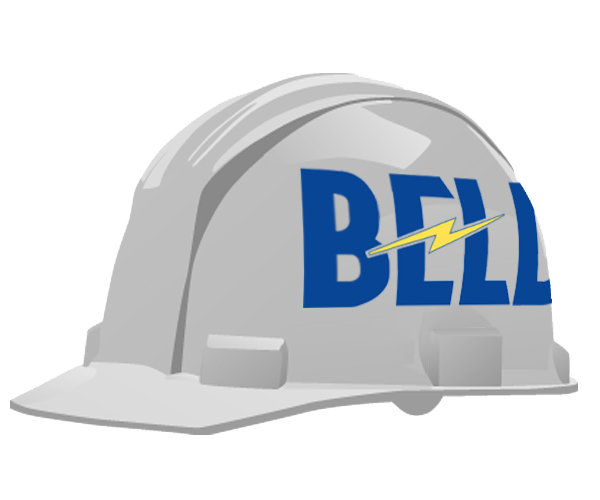 Inside the home
Inside the home
- Put safety caps on all electrical outlets, especially in households with children. These inexpensive items are available at hardware stores.
- When bathing your child, unplug nearby electrical appliances—electricity and water are a deadly combination.
- Keep youngsters a safe distance from electric space heaters, and never leave small children unattended near electric appliances, lamps, fans or motors.
- Before operating a new appliance, read and follow manufacturers instructions.
- Don’t overload an outlet with too many plugs. Wires can overheat and cause a fire. Similarly, never overload a circuit—large appliances should have separate circuits.
- Replace worn wires or extension cords, and never run them under rugs or over heaters.
- Always unplug appliances not being used—even if the switch says “off,” the power could still be flowing.
- If someone receives an electric shock:
• Don’t touch any person or thing that is still in contact with the electricity. Call 911 immediately.
• Shut off the circuit breakers before you touch the person.
• If necessary, use mouth-to-mouth resuscitation or CPR on the person. Cover them with a blanket and wait until help arrives
Outside
- Keep ladders, antennas, kites, and people away from power lines.
- Landscape with care. Call Dig Safe at 1.888.DIG.SAFE (344.7233) to have underground utilities marked before digging to prevent damage to electric, telephone, or gas underground facilities. Notification is required at least 48 hours before you start digging operations. In an emergency, call Dig Safe immediately. For more information, visit Dig Safe at www.digsafe.com.
- Don’t plant large trees beneath overhead lines. If a tree has power lines running through it, call 781.348.BELD. Do not attempt to trim the tree yourself.
- Never use power tools or other outdoor equipment while it’s raining or if the ground is wet.
- Don’t hang signs on utility poles. Our lineworkers wear special rubber gloves to insulate them from electricity. Nails, staples and other fasteners can snag or puncture their gloves and endanger their lives.
- Avoid substations and transformers. High-voltage equipment can be very dangerous. Teach your children to respect the “Danger” signs.
- Consider all power lines energized and dangerous. Remember that metal and water can conduct electricity, so keep your distance and be careful what you touch. Even the ground around a downed wire can be electrically charged and deadly. If you see downed power lines call BELD to report them and let trained professionals take care of the situation.
- If you happen to be in a car when power lines come down, stay there until help arrives. If the car is on fire and you need to get out, do not touch the ground and the car at the same time—the electrical current could pass through your body. Instead, jump as far from the vehicle as you can and then bunny hop or shuffle your feet until you are a safe distance from the car and wire. The key is to keep your feet as close together as possible.
If you are planning to have your home sided, please have your contractor contact BELD to have your electric meter and related equipment removed before any work is done on your house. A BELD employee will remove and replace the equipment for a small service charge. Because your electric meter is BELD property, only BELD personnel are authorized to remove it.
BELD recommends contacting the Town of Braintree Department of Municipal Licenses & Inspection – Building Division before contacting us to determine if you need a building permit prior to removal of siding and our electric meter. In some cases residents are required to apply for a permit prior to equipment removal, the building department will be able to let you know what is needed.
Town of Braintree Department of Municipal Licenses & Inspection –
Building Division
Website
1 JFK Memorial Drive, Braintree, MA 02184
781-794-8070
Fax: 781-794-8022
Stealing electricity by tapping electric lines and interfering with meters, or willful damage to the structure or equipment of an electric power company, is a crime. If you suspect electric meters are being tampered with, please call us immediately.
The Braintree Electric Light Department (“The Department”) hereby sets forth its “Rules and Regulations for Electric Service” for the purpose of 1) fostering a better exchange of information among the Department and it’s Customers regarding the requirements and availability of the electric service from the Department and 2) presenting in written form in one place the Department’s general conditions and requirements of service.
The information and requirements stated herein and as they may be amended are an integral part of and subject to the Department’s Schedule of Rates and its Terms and Conditions filed from time to time with the Massachusetts
Department of Telecommunications and Energy.
The Rules and Regulations are in addition and supplementary to the applicable national, state and local electrical and safety code and to by-laws and regulations passed by governmental authorities having jurisdiction.
The Rules and Regulations are on file with the Department in its main office located at 150 Potter Road, Braintree, Massachusetts and are available in booklet form upon request from the Department.
